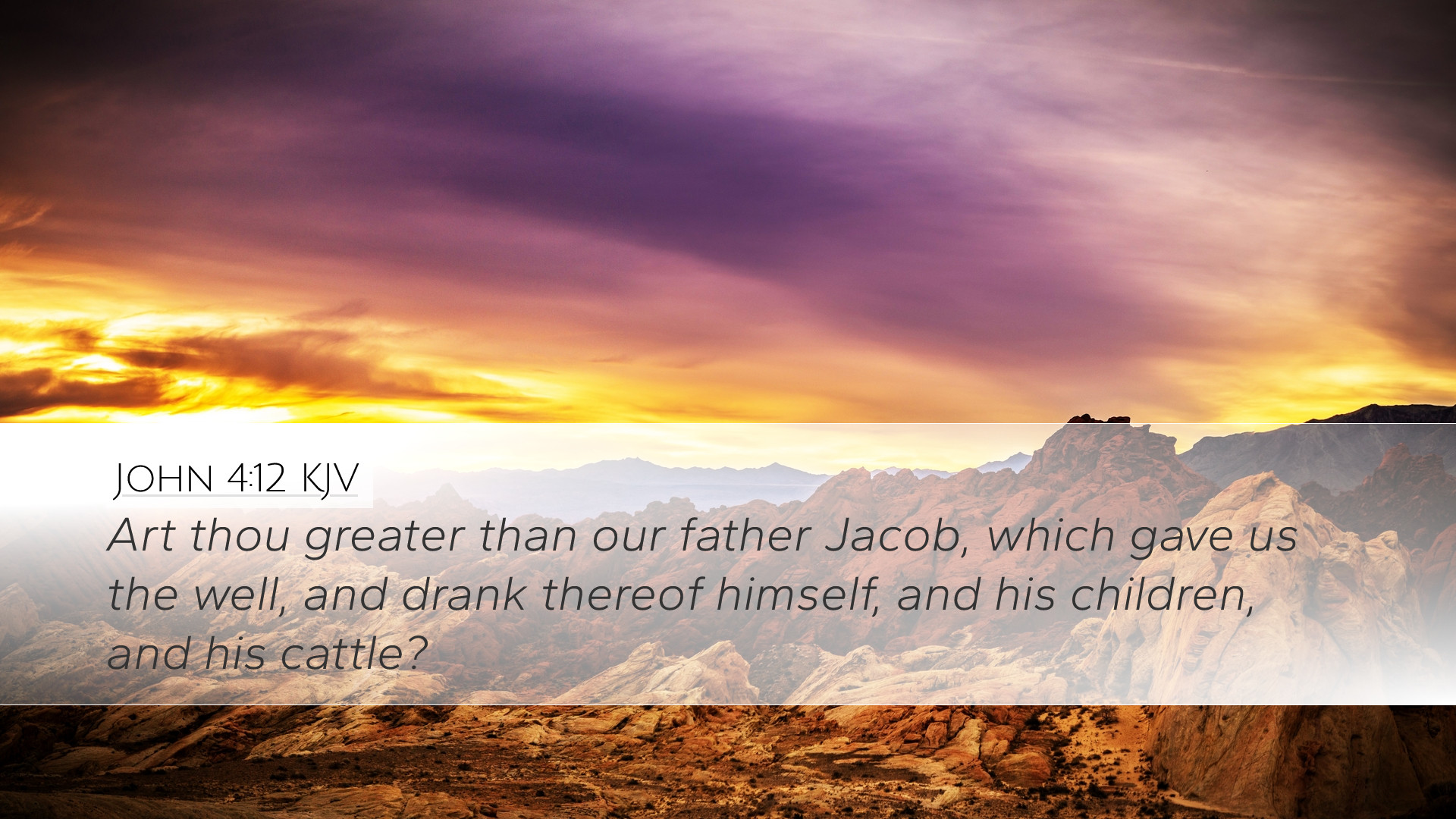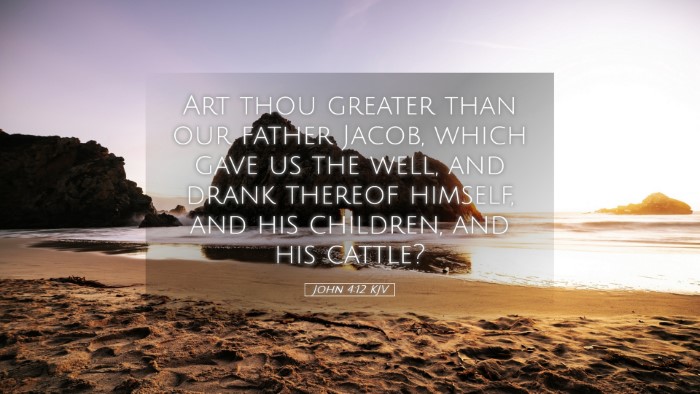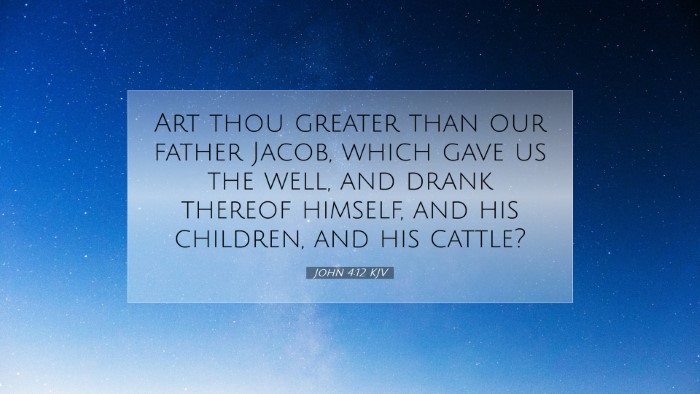Commentary on John 4:12
John 4:12 says, "Art thou greater than our father Jacob, which gave us the well, and drank thereof himself, and his children, and his cattle?" This verse is part of the powerful encounter between Jesus and the Samaritan woman at Jacob’s well. In analyzing this verse, we draw from several public domain commentaries to provide a comprehensive perspective.
Contextual Overview
This passage occurs during Jesus' journey through Samaria, which was significant given the historical animosities between Jews and Samaritans. Jesus breaks cultural barriers by engaging the woman in conversation, leading her to spiritual truths.
Insights from Matthew Henry
Matthew Henry emphasizes the irony of the Samaritan woman questioning Jesus’ superiority over Jacob. Jacob, the patriarch, is esteemed in Samaritan tradition, as he provided the well of Sychar. Henry illustrates that the woman, though knowledgeable of her heritage, fails to grasp the spiritual truths Jesus is presenting. He notes:
- The Significance of Jacob's Well: Jacob's well symbolizes a physical source of life and sustenance, yet Jesus offers a deeper spiritual sustenance—living water.
- Amateur Understanding: The woman represents those who have a surface-level understanding of spiritual matters, often clinging to ancestral traditions rather than personal, transformative faith.
Insights from Albert Barnes
Albert Barnes provides a detailed analysis of the historical and cultural implications surrounding the statement made by the woman. He highlights several key aspects:
- Question of Authority: The woman’s question implies doubt about Jesus’ identity and authority. By asking if He is greater than Jacob, she challenges His messianic claims.
- Historical Relevance: Jacob was revered not only as a patriarch but also as the one who provided physical sustenance. This question illustrates the deep-rooted views of Samaritans regarding their heritage.
- Invitation to Reflection: Barnes suggests that this interaction invites readers to reflect on what it means to recognize true authority. Jesus is much more than Jacob; He is the source of eternal life.
Insights from Adam Clarke
Adam Clarke’s commentary enriches the understanding of this encounter by focusing on the theological implications of the woman's statement. He makes several important points:
- Comparison of Sources: Clarke discusses the juxtaposition of the physical well and the spiritual well of living water. The well provides water to quench thirst temporarily, but Jesus speaks of water that leads to everlasting life.
- Samaritan Identity: The woman's reference to Jacob indicates her connection to a cultural and religious identity that shaped her worldview, which contrasts sharply with the revelation that Jesus brings.
- Revelation of Christ's Nature: Clarke suggests that Jesus’ interaction with the woman serves as a revelation of His nature—being greater than Jacob, He embodies the fulfillment of all that they long for.
Theological Implications
This interaction at the well encapsulates numerous theological themes that are vital for pastors, students, and theologians:
- The Nature of Jesus: Jesus is presented not just as a teacher but as the source of living water, a metaphor for spiritual sustenance and eternal life.
- Breaking Cultural Barriers: The encounter signifies the breaking of ethnic and cultural barriers, emphasizing that the message of the Gospel transcends cultural identities.
- Understanding and Revelation: The dialogue serves as a reminder of the necessity for spiritual understanding and the journey from a superficial knowledge to a profound experience of faith.
Application for Believers
As we reflect on John 4:12, there are several applications for today’s believers:
- Seeking Understanding: Believers are encouraged to seek deeper understanding of who Jesus is compared to the heroes of faith from the Old Testament. Recognizing Jesus as the ultimate source of life transforms faith.
- Bridging Divides: In light of Jesus’ example, Christians are called to engage with others across cultural divides, sharing the message of the Gospel without prejudice.
- Living Water: The metaphor of living water challenges believers to assess their spiritual thirst and what truly satisfies it. Are we drawing from the well of tradition, or from the living water offered by Christ?
Conclusion
The interaction between Jesus and the Samaritan woman at Jacob's well is rich with meanings and implications, as seen through the lenses of Matthew Henry, Albert Barnes, and Adam Clarke. John 4:12 serves as a challenge to all believers—pushing them towards a deeper understanding of Christ, a recognition of cultural and ethnic barriers, and an invitation to partake in the living water that Jesus offers generously.


